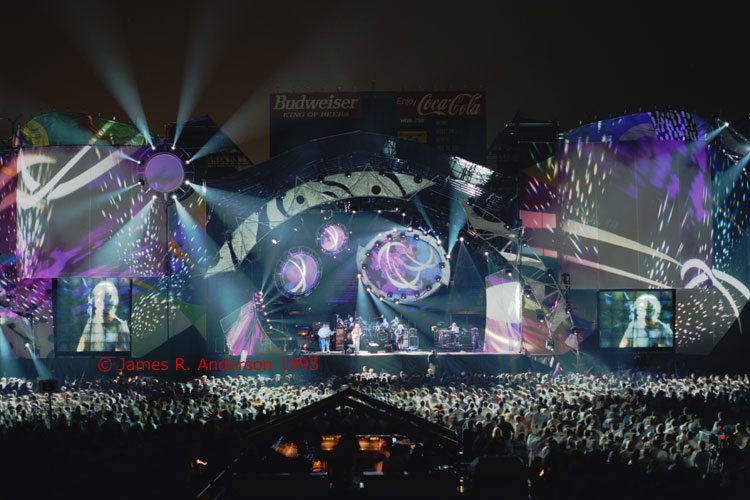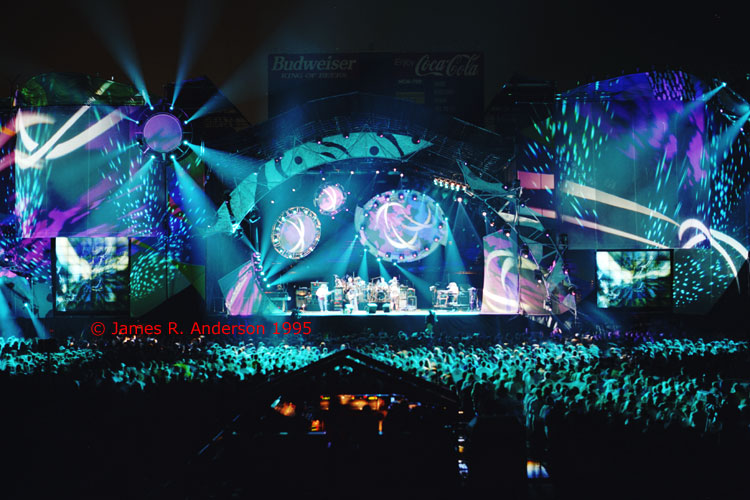|
December 10, 2005
It is well known that the Grateful Dead failed to penetrate the record charts, the radio playlists and the tv music shows. This allowed the band to escape the creative tradeoffs that have bedevilled those pop musicans whose careers depend on the shifting winds of popular merchandising and musical fashion.

Jim Anderson
The Grateful Dead's easygoing (libertarian) attitude toward concert recordings had been a cornerstone of its music making. At concerts there was always an authorized "tapers' section"---a mini-forest of high-quality microphones on long poles --and the band never tried to stop fans from trading the recordings, as long as they weren't sold. Over the years some of the fans archived edited and processed the music, and a traders' network grew, which developed from the cassettes by mail of yesterday to the digital downloads of today.

Jim Anderson
This free archive was quite different from the bands own archive of recordings, which have resulted in a number of CDs over the years in the Dicks Picks (based on stereo master recordings made at shows on reels) and the 'From The Vault' series (made from multi-track material) such as The Knickerbocker Arena, Albany, NY - March 24-26, 1990 which gave rise to the "Dozin' at the Knick" shows.
The relationship between the fans and the bands recordings was based on a model of music as folklore or music belonging to, and a part of, the (Deadhead) community.
What has developed from the fans recordings is a free archive of digital music that exists outside the corporate recording business; an archive that is in competition between to the Grateful Dead's own digital archive.
So in these days of digital copyright and brand value who owns the rights to the live music? Especially when the Grateful Dead as a commercial entity or corporation, as distinct from the band, has been struggling for survival.
The conflict surfaced. Grateful Dead Merchandising asked Live Music just before Thanksgiving Day to pull their substantial catalogs of the band's concert recordings. That angered fans to the point where an online petition was circulated with a threat of boycott of the officially sanctioned Grateful Dead Merchandising releases and Dead concerts. The commercial entity retreated and the shows were reposted for free access.
I'm sure the conflict will resurface.
|

Changing alright. Mp3s and the internet have commoditised the swapping/interchange of music. Software like garageband has commoditised the studio. I actually walked around a studio the other day that was used by christian bands. It was not economically viable anymore. I suspect the reason was that the studio owner invested $2000 in a mac and garageband.
The internet is also being used to co-ordinate music as a fun, challenging and swappable activity. A couple of good examples;
MFC 1
MFC 2
The demo tape scene just became more immediate, intimate and ultimately diversified. Interesting innovation.